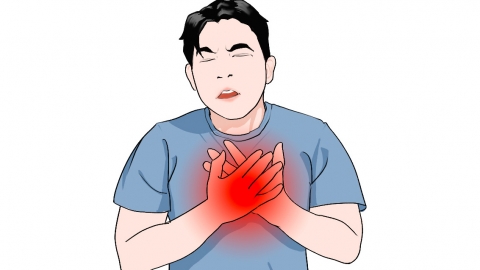How to comprehensively examine the causes of chest tightness and shortness of breath
Generally, chest tightness and shortness of breath require evaluation through basic examinations, cardiopulmonary-specific tests, blood tests, gastrointestinal assessments, and psychological evaluations to identify potential causes such as coronary heart disease, asthma, anemia, gastroesophageal reflux, or anxiety states. If symptoms recur, it is recommended to seek timely and systematic medical evaluation at a正规 hospital. Specific analyses are as follows:
1. Basic Examination
Blood pressure measurement, heart rate monitoring, and physical chest examination can help determine whether there are abnormalities in blood pressure, arrhythmia, or thoracic structure. Remain at rest during the examination. If abnormalities in blood pressure or heart rate are detected, further monitoring is required. Avoid strenuous exercise and maintain regular daily routines.

2. Cardiopulmonary-Specific Tests
Electrocardiogram (ECG) helps detect myocardial ischemia and arrhythmias; chest CT scans can identify lung inflammation, tumors, or pneumothorax; pulmonary function tests aid in diagnosing asthma and chronic obstructive pulmonary disease (COPD). Avoid vigorous activity before testing. Asthma patients should inform their doctor about medication history beforehand. If coronary heart disease is suspected, further coronary angiography may be needed, with possible stent placement if necessary. Asthma patients may use budesonide/formoterol powder inhaler, salbutamol aerosol, or montelukast sodium tablets under medical guidance.
3. Blood Tests
Complete blood count (CBC) can detect anemia, which leads to insufficient oxygen delivery; cardiac enzyme panels assess for myocardial injury; arterial blood gas analysis evaluates lung ventilation function. Fasting is required before testing. If anemia is confirmed, ferrous succinate tablets, vitamin B12 tablets, or folic acid tablets may be used under medical supervision. For myocardial injury, medications such as enteric-coated aspirin tablets, clopidogrel hydrogen sulfate tablets, or atorvastatin calcium tablets may be prescribed based on clinical condition.
4. Gastrointestinal Evaluation
Gastroscopy or 24-hour esophageal pH monitoring can diagnose gastroesophageal reflux disease (GERD), where refluxed material irritates the esophagus and triggers chest tightness. Patients must fast and avoid drinking water before the test. After diagnosis, dietary adjustments are recommended—avoid overeating—and medications such as omeprazole enteric-coated capsules, domperidone tablets, or hydrotalcite chewable tablets may be used under medical guidance.
5. Psychological Assessment
Psychological rating scales are used to evaluate whether somatic symptoms are caused by anxiety or depression. Provide honest feedback regarding emotional status. If diagnosed with an anxiety state, psychological counseling is recommended, and when necessary, medications such as sertraline hydrochloride tablets, escitalopram oxalate tablets, or lorazepam tablets may be prescribed under medical supervision.
In daily life, avoid excessive fatigue and maintain emotional stability; follow a light diet and reduce intake of spicy or irritating foods; undergo regular health check-ups, especially individuals with a family history of heart or lung diseases; immediately stop any activity and seek medical attention if chest tightness or shortness of breath worsens.




